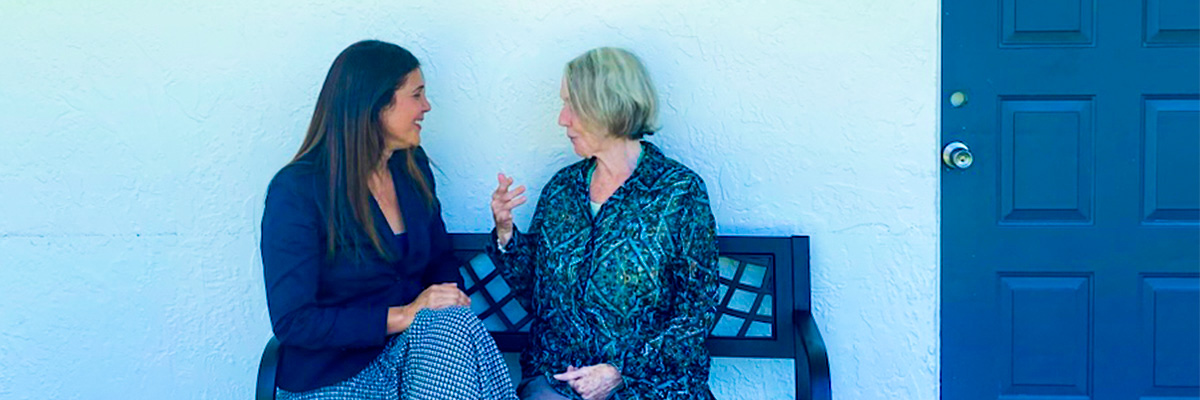There is an energy here at Mia Casa, the Miami-Dade County Homeless Trust’s new bridge housing project for homeless adults 65 and older. It’s light, airy, and joyous, with an intentional and carefully curated vibe envisioned by operator Roxana Solano. Solano didn’t set out to operate housing for formerly homeless seniors. A former dentist in Dominican Republic, she fell into the business of elder care by accident, and when she did, she was hooked. After arriving in the US at the age of 28, she was hired as a senior living activities director. She learned everything she could about the business until she eventually found herself buying and managing senior assisted living facilities.
In 2020, at the height of the coronavirus pandemic, Solano’s work and that of the Homeless Trust converged. Solano put her next planned assisted living facility on hold to serve as a quarantine and isolation site for seniors experiencing homelessness and at the highest risk of serious illness from COVID. This pandemic care partnership eventually evolved into the Trust’s first owned and operated facility exclusively for older adults.
In January of 2023, the Trust finalized the purchase of the property with Solano running the day-to-day operations.
Q: At first, you were hesitant to open Mia Casa up to people experiencing homelessness.
“Yes, but I had a newly rehabbed facility that wasn’t being used because everybody was keeping their elders at home. And I thought about it…. where would you put an 80-year-old woman experiencing homelessness? She can’t go on the top bunk bed in a shelter! So, I said, okay, let's give it a try.
When that first van showed up and with 12 people experiencing homelessness with their carts and their bags, I said, ‘You know what? I am going to love this.’ and I've been in love since then.”
Q: It’s so evident as you walk around Mia Casa that everybody loves their job here. What’s the secret?
You know, I believe that companies reflect their people and people reflect their leadership. If you have a leader who shows compassion, employees show compassion. I want to make sure that my residents know that we care. By holding a resident’s hand, fixing their jacket, or making a visit to see them at the hospital, it says we care about you.
My staff specializes in seniors, so I make sure every time we hire somebody here, they have compassion and care and patience.”
Q: You’ve learned a lot by operating a shelter for people experiencing homelessness. What would you want the community to know?
“You know, everybody comes from different experiences. We have people that have been in jail for many, many years. They have burned the bridges; Families don't want to deal with them. You also have people that lost their money, lost their health - couldn't make the payments. You have people from different backgrounds who used to have a house and their spouse took everything and now they're on the streets. But in the end, they are all people.”
Q: What is the main thing that you do to form that relationship with and bond with your residents?
“I believe everybody needs to be seen. When we at Mia Casa hear a [resident’s] story over and over, or a little poem that they wrote last night, or cry with them over the death of a loved one, it makes them feel seen. At Mia Casa, we shelter the heart.”
Q: Your staff, and the teams that provide wrap-around services, have managed to keep one man who was on the streets for 30 years, housed here for a record amount of time.
“Yes, they called him the Ninja. Everybody knows the Ninja! He has a mental health illness.
When COVID hit, specialized street outreach teams brought Ninja here. His medical condition was terrible.
We had been working with him to change his clothing. He was walking around in the same clothes he was always wearing. For his own dignity, we went to buy him some clothes, but he didn’t want to wear them, so I said, ‘Carlos, you are not on the streets anymore. You now have a home. You don’t need to dress like you are homeless. You can change your clothes and dress like somebody that already has a home.’
So, he went changed - he even changed his bandana. New shirt. New pants. That's it. Carlos threw away those pants. He doesn't wear the homeless pants anymore.
To me, that’s a success story – if I only had one, it would be my Ninja story.”
Read more about Mia Casa.



